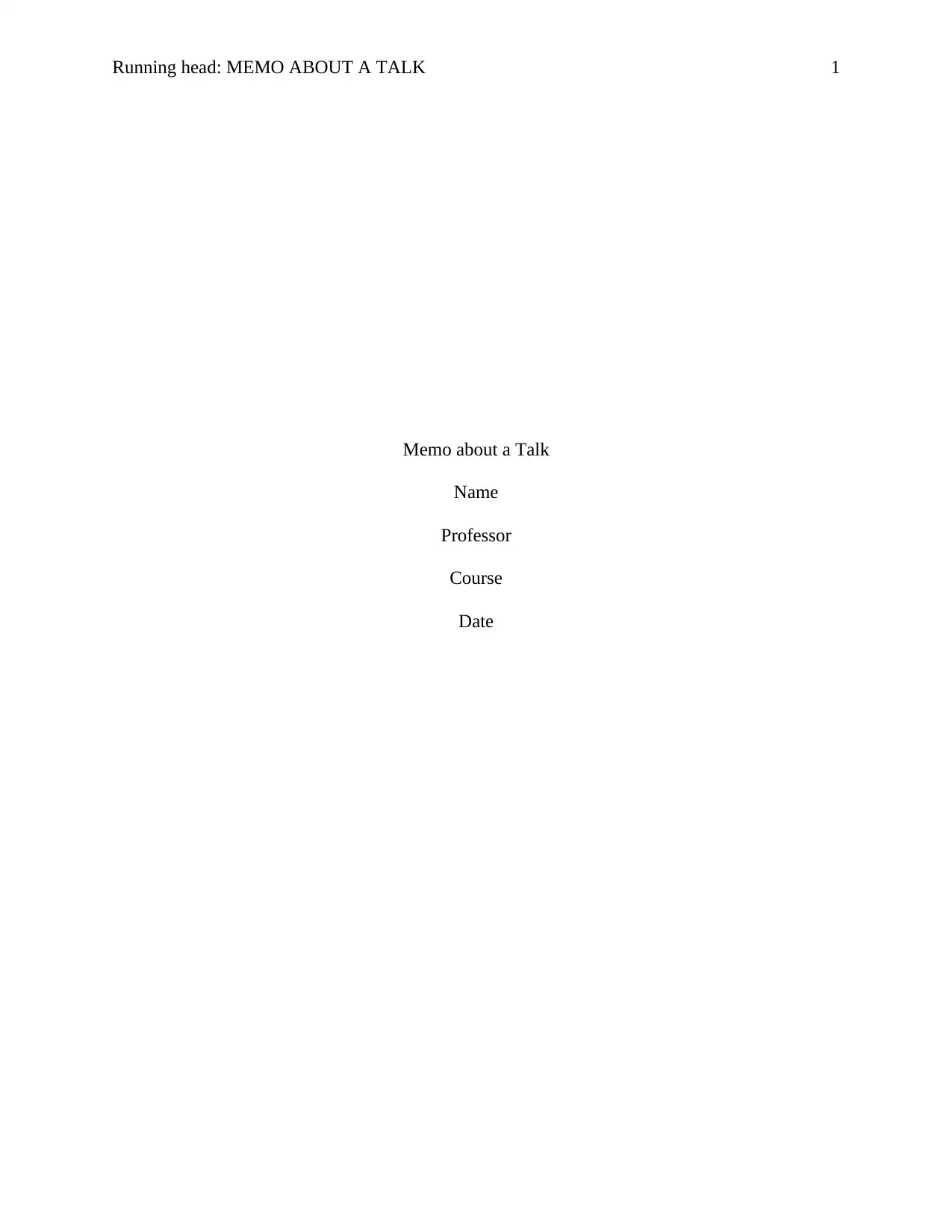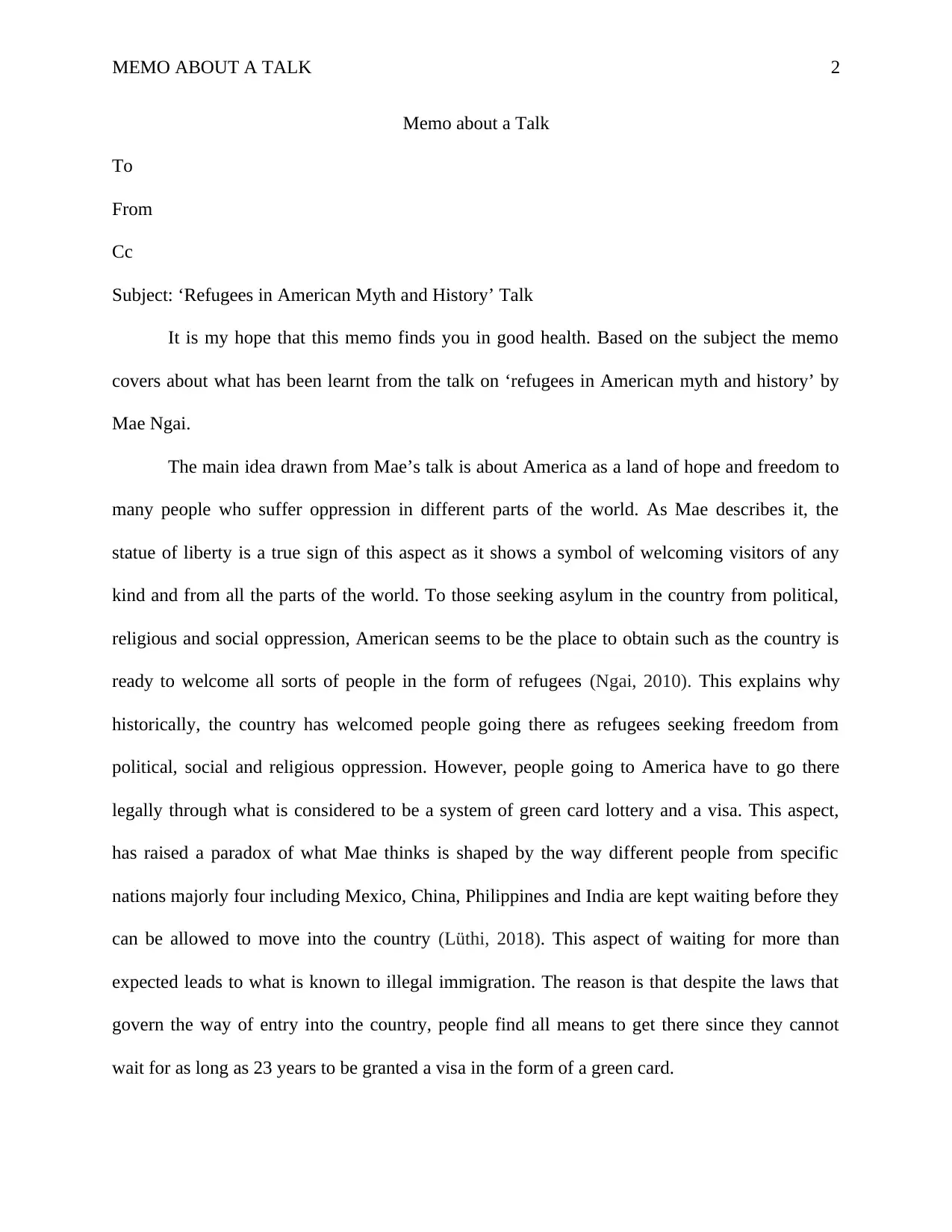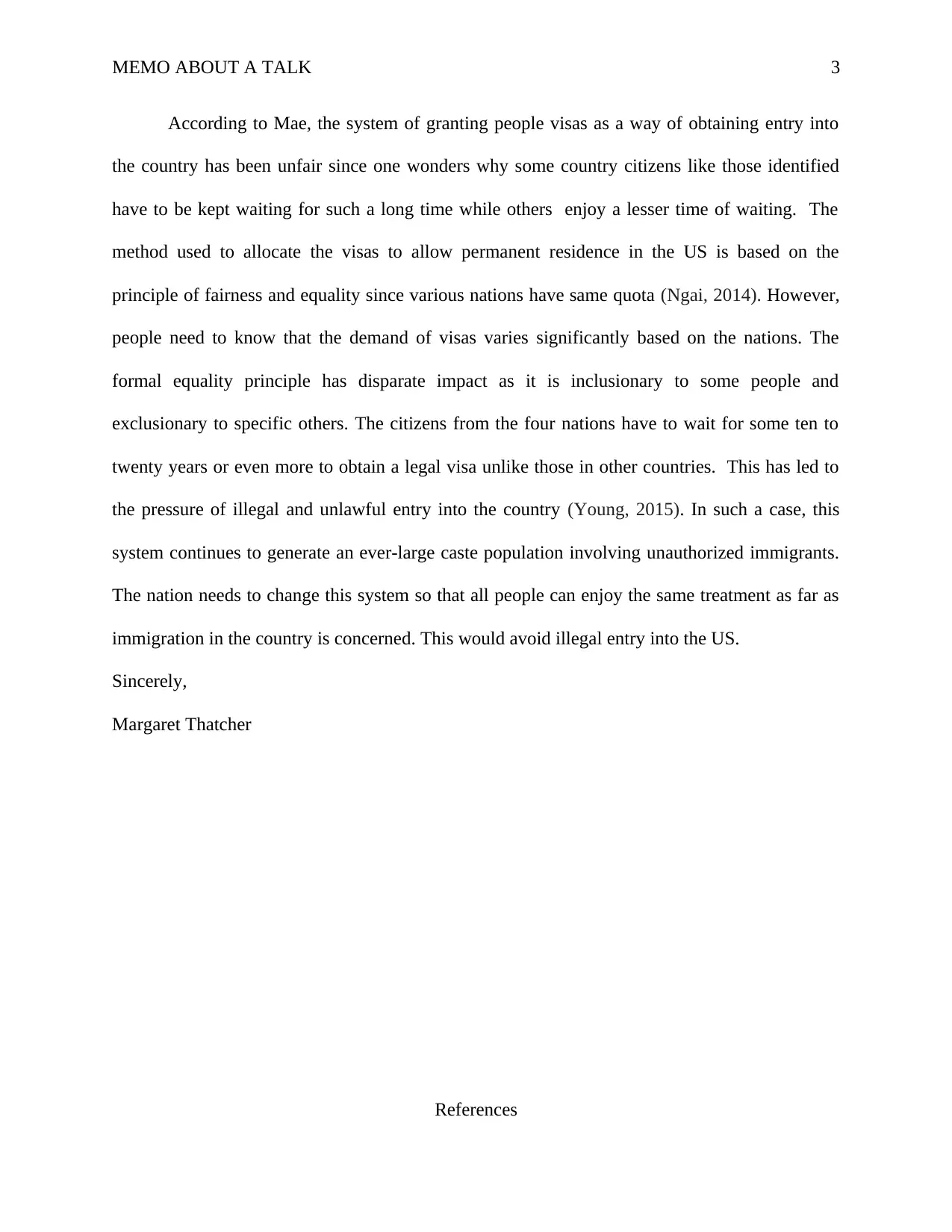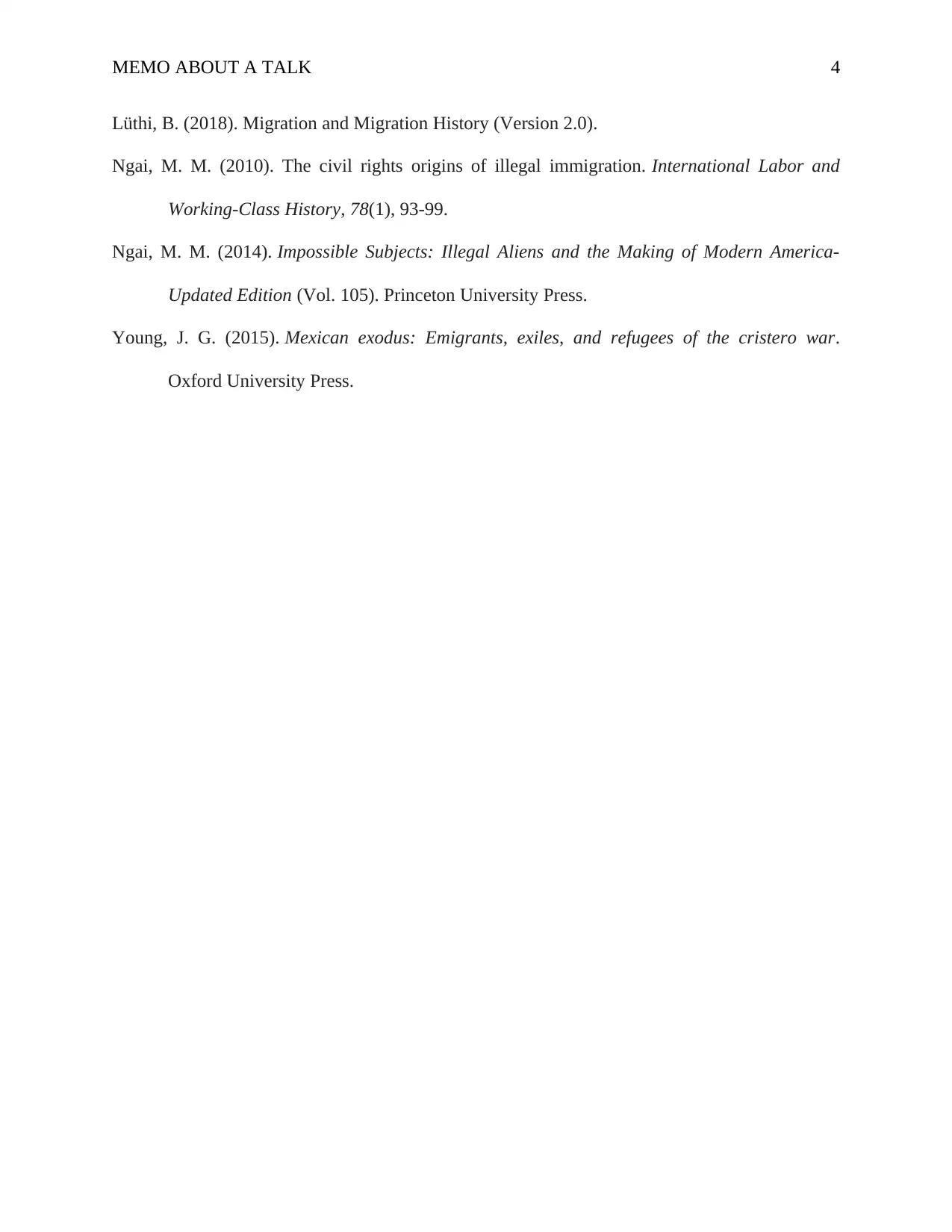Memo on 'Refugees in American Myth and History': A Critical Analysis
VerifiedAdded on 2023/03/23
|4
|703
|52
Report
AI Summary
This memo analyzes a talk by Mae Ngai on 'Refugees in American Myth and History.' The memo discusses the concept of America as a land of hope and freedom for those seeking refuge from political, religious, and social oppression, symbolized by the Statue of Liberty. It highlights the historical welcoming of refugees but also addresses the paradox created by the legal immigration system, particularly the long waiting periods for visas faced by citizens from certain countries. The memo critiques the fairness of the visa allocation process, arguing that the system's disparate impact leads to illegal immigration and calls for changes to ensure equal treatment for all immigrants. It references works by Lüthi, Ngai, and Young to support its arguments.
1 out of 4






![[object Object]](/_next/static/media/star-bottom.7253800d.svg)